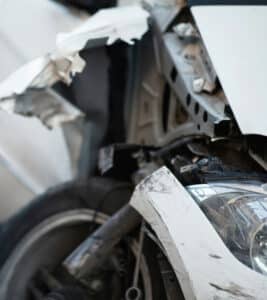 A car accident, regardless of its severity, can be a jarring disruption to your life. Not only does it present immediate physical risks, but it also introduces a complex array of medical and legal challenges. This guide, courtesy of WPRN Public Radio, is designed to navigate you through the essential steps you should take following an accident to ensure your safety, protect your health, and preserve your legal rights.
A car accident, regardless of its severity, can be a jarring disruption to your life. Not only does it present immediate physical risks, but it also introduces a complex array of medical and legal challenges. This guide, courtesy of WPRN Public Radio, is designed to navigate you through the essential steps you should take following an accident to ensure your safety, protect your health, and preserve your legal rights.
Get an Immediate Medical Evaluation
The first step after a car accident is to ensure that any injuries are professionally assessed. It’s imperative to visit a healthcare professional promptly—even if you initially feel unharmed (1). Some injuries, such as internal bleeding or concussions, might not present immediate symptoms. Early diagnosis and treatment are not only vital for your health but also crucial for documenting your condition, which could become important evidence if legal or insurance issues arise.Â
Document Symptoms and Injuries
Following your initial medical check-up, it’s essential to maintain a detailed record (2) of your symptoms and injuries. Document every detail about your health, no matter how minor it may appear. This log should include descriptions of pain, any discomfort, mobility issues, and how these conditions affect your daily activities. This ongoing documentation will be crucial for follow-up medical visits and indispensable in legal contexts, helping to establish a clear link between the accident and your injuries.
Chiropractic Care After an Accident
Incorporating chiropractic care into your recovery plan can be highly beneficial, as chiropractors are experts in treating accident-related injuries like whiplash, herniated disks, and soft tissue damage. Finding a skilled chiropractor can significantly enhance your recovery by addressing the specific needs arising from such injuries. The duration of chiropractic treatment can range from a few sessions to an extended period, depending on the severity of your injuries and your body’s response to the care, a practice that can help with recovery (3) and facilitate a quicker return to daily activities.
Secure a Copy of the Police Report
Securing a copy of the police report is a crucial step in the aftermath of an accident. This report provides an official account (4) of the incident’s circumstances, which is vital for legal and insurance purposes. It includes details about the parties involved, witness accounts, and an initial assessment of fault, which can be instrumental in protecting your interests during insurance claims or legal proceedings.
Notify Your Insurance Company
It is important to notify your insurance company about the accident without delay. Initially, provide a factual account of the incident and subsequently update them with any new information related to your health or additional details from the accident scene. Maintaining an open line of communication (5) with your insurer helps ensure that your claims process moves smoothly and reflects all aspects of the incident.
Maintain Records of Accident-Related Expenses
Keep comprehensive records of all expenses related to the accident. This includes medical treatments, prescription medications, therapy costs, and repairs to your vehicle. Accurate and detailed expense tracking (6) is vital for insurance claims and legal claims, ensuring you are compensated for all out-of-pocket expenses incurred due to the accident.
Legal Consultation and Advice
Consulting with an attorney is advisable, especially if the accident involves significant damage, injuries, or if the fault is disputed. Share every piece of information—medical records, expense receipts, and the police report—with your attorney. An experienced lawyer can provide invaluable advice on navigating the legal complexities (7) of your case, dealing with insurance companies, and ensuring your rights are fully protected.
Navigating the aftermath of a car accident involves a series of critical steps that focus on your immediate health, detailed documentation, and careful legal and insurance communications. By methodically following these guidelines, you ensure the best possible foundation for your physical recovery and legal protection. Remember, your proactive steps are not just about recovery but about actively managing the situation to safeguard your future health, finances, and legal rights.
WPRN Public Radio offers a variety of news stories to help keep listeners entertained and informed. Take a look around the site today for up-to-date health news, author interviews, writing tips, and more.
- When to See a Car Accident Doctor: Tips After Accident | Mighty
- Free Personal Injury Guides & Checklists to Download/Print (enjuris.com)
- Atlanta Car Accident Chiropractor Near Me (aica.com)
- Filing a Police Report After a Car Accident (thebalancemoney.com)
- Reporting an Accident to Insurance: Everything You Need to Know (caranddriver.com)
- 8 Best Personal Expense Tracker Apps of 2024 – NerdWallet
- Is An Auto Accident Lawyer Worth Hiring? (2022) (motor1.com)
